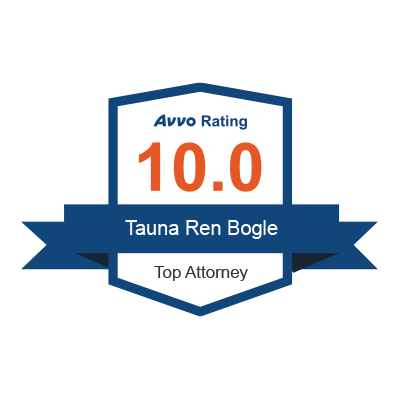
Charlotte County Alimony Attorney
Helping Clients Navigate Florida’s Evolving Alimony Laws
Alimony, or spousal support, is not automatic in Florida divorce cases. While not every divorce involves alimony, either party may request it, and the court is required to consider that request under Florida Statutes. Whether spousal support is awarded depends on a careful evaluation of several statutory factors, including one spouse’s financial need and the other spouse’s ability to pay.
To discuss your options, contact a Charlotte County alimony lawyer at (941) 257-4743 or fill out our online form today.
What is Alimony?
Alimony is a court-ordered financial support paid by one spouse to the other during or after divorce to bridge financial disparity. Florida law recognizes that some spouses may require support to become self-sufficient after the dissolution of marriage.
Types of Alimony Under Florida Law
As of July 1, 2023, Florida has eliminated permanent alimony and narrowed the scope of available spousal support. The following types of alimony are currently recognized under Fla. Stat. § 61.08:
- Temporary Alimony: Awarded during the pendency of the divorce proceeding to maintain the status quo.
- Bridge-the-Gap Alimony: Provides short-term support (not to exceed 2 years) to help a spouse transition from married to single life. It is non-modifiable in amount or duration.
- Rehabilitative Alimony: Designed to assist a spouse in acquiring education, training, or work experience necessary for self-sufficiency. Must include a specific and defined rehabilitation plan.
- Durational Alimony: Available for marriages of short or moderate duration, and in some cases for long-term marriages if other forms of alimony are insufficient. Durational alimony may not exceed:
- 50% of the length of a short-term marriage (less than 10 years)
- 60% of the length of a moderate-term marriage (10–20 years)
- 75% of the length of a long-term marriage (over 20 years)
How Courts Determine Alimony
Florida courts apply a two-step process:
- Need vs. Ability to Pay: The requesting party must prove financial need, and the other party must have the ability to pay.
- Consideration of Statutory Factors, including:
- Duration of the marriage
- Standard of living during the marriage
- Age and physical/emotional health of both parties
- Financial resources and liabilities of each party
- Contributions to the marriage (including homemaking and child care)
- Responsibilities regarding minor children
- Earning capacity, education, employability
- Tax consequences of alimony
- Any history of domestic violence
The Alimony Process in Charlotte County
The process for obtaining alimony includes:
- Filing a Petition
- Financial Disclosures
- Negotiation and Mediation
- Hearing or Trial
- Final Judgment
Modifying or Terminating Alimony in Florida
Modifications may be permitted if there is a substantial, material, and involuntary change in financial circumstances that was not contemplated at the time of the final judgment. Additional grounds include:
- Supportive Relationships
- Retirement
- Remarriage
Modifications must be sought by filing a supplemental petition with the court.
Enforcing Alimony Orders
If your former spouse has failed to comply with a court-ordered alimony obligation, Florida law provides enforcement tools, including:
- Income deduction orders
- Contempt proceedings
- Garnishment
- Claims for attorney’s fees and interest
Why Choose Bogle Law for Your Alimony Case?
At Bogle Law, we provide results-driven representation focused on protecting your financial stability and rights. Whether you’re seeking, modifying, enforcing, or contesting alimony, our family law attorneys in Charlotte County bring experience, strategy, and compassion to every case.
What Sets Us Apart:
- In-depth knowledge of the new Florida alimony laws
- Custom legal strategies tailored to your goals
- Transparent communication at every stage
- Skilled litigation and negotiation experience
Speak With a Charlotte County Alimony Attorney Today
Alimony law in Florida has undergone substantial changes. Whether you're filing for divorce or need help modifying or enforcing an existing order, you deserve experienced legal guidance.
Call (941) 257-4743 or complete our online form to schedule a consultation with Bogle Law.
Contact the Charlotte County alimony attorney today to schedule a consultation and take the first step toward understanding your rights and options regarding alimony in Florida. Call now - (941) 257-4743

Committed to Your Future
The Values That Drive Our Firm
-
Team-Based Approach
You can benefit from an entire team of professionals working to protect your future and provide comprehensive legal strategies.
-
Unwavering IntegrityAt Bogle Law, we handle every case with honesty and transparency, always working in the best interests of our clients and their families.
-
Personalized SupportWe prioritize our clients' needs, offering compassionate, personalized support and attention to detail to guide you through every step of your case.
-
Trial-Tested Experience
With years of experience and proven success in the courtroom, we bring skilled representation to even the most challenging cases.
What Our Clients Are Saying
-
“Tauna Bogle was professional and easy to work with. During a time of stressful events, she carefully guided us and provided all services we needed.”Anthony
-
“Tauna is very poised, very confident and professional. I am forever grateful to her for taking my case and succeeding in protecting my business and everyday life from disaster.”Joe
-
“Ms. Bogle was very knowledgeable about the issues faced in my case and was able to give the very best advise on how to proceed, resulting in a positive outcome.”Anonymous




